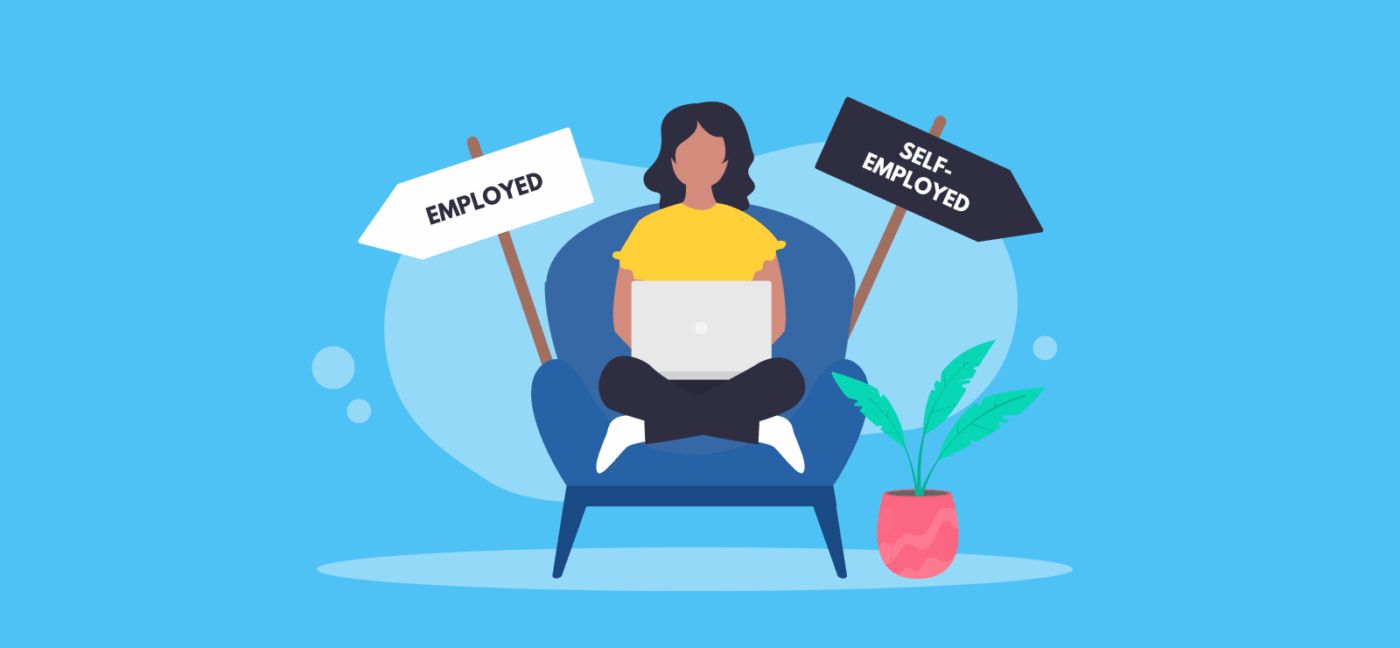

Do Accidental Landlords Need to Pay Tax?
Becoming an ‘accidental landlord’ is a daunting prospect, especially when it comes to dealing with tenants, getting the right insurance, and paying the correct taxes on your property income. Where do you even start?!
If you’ve found yourself in this situation, it’s good to know you’re not alone. Statistics show that 35% of landlords in England originally bought their property for themselves, and 7% inherited property from a loved one. While some of those might have planned to let out their home eventually, with the rising cost of living many have become landlords through no choice of their own.
What is an accidental landlord?
Accidental landlords usually rent out their property due to unforeseen circumstances, rather than actively acquiring a property with the intention of becoming a landlord. For example, they might have found themselves in possession of a home that’s not selling and they’re moving away or moving into their partner’s home.
How do you become an accidental landlord?
You can become an accidental landlord for a number of reasons, but a few common ones are:
- You can’t sell your home (usually due to things like the cost of living or rising mortgage rates) so you rent it out instead
- You’ve moved into a partner’s home and now have a ‘spare’ house
- You’ve inherited a property
- House prices put you off selling your property for the time being
- You move overseas or travel for work and want to keep your home as an asset
- You’ve decided to earn some extra income, or want to cover the cost of the mortgage whilst the property increases in value
There are likely to be more reasons we’ve missed off our list. Basically, an ‘accidental’ landlord means you had no original plans to rent out your property or become a landlord in any way, shape, or form – it just happened!
Do I need to register as a landlord in the UK?
This depends on where you’re based, and rules vary across the UK.
| Country | Do you need to register as a landlord? |
| England | You don’t need to register to be a landlord in England, but you may need to pay a fee to your local authority depending on where you’re based. |
| Northern Ireland | You’re required to register as a landlord in Northern Ireland. You’ll receive a Landlord Registration Certificate that is valid for three years, and costs £70. |
| Wales | You are required to register as a landlord in Wales. It costs £45 to do it online, and £84 via post. |
| Scotland | You are required to register as a landlord in Scotland (different fees apply), but there are exemptions. For example, if you rent your home out to a family member, or you’re subletting your home. |
Your responsibilities as a landlord go beyond the registration process. It’s important to note you’ll also need to ensure you’ve completed all your gas and electrical checks and keep up with general maintenance (as well as many other duties).
How do I pay taxes as an accidental landlord?
Even as an ‘accidental’ landlord, you’ll normally need to pay tax on your rental income by completing a tax return declaring how much you’ve received in rent for that tax year.
The kind of tax return you need to submit depends on whether you own the property as a limited company or as an individual, but if you receive any untaxed income then you’ll normally need to file a Self Assessment tax return to report your property earnings.
Ensure your bookkeeping is up to date, so you know exactly how much you’ve earned, as well as what you’ve spent in order to rent out the property so you can claim any allowable expenses too! These might include:
- Any maintenance and repairs
- Business costs, for example any stationary or expenses for running your office
- Insurance
- Accountant’s fees and letting agents
Can I own the property as a limited company?
Yes, you can! Many landlords prefer to own their properties through a limited company because in can sometimes be a more tax-efficient option, and can protect you against higher rates of tax, especially if you have another source of income.
It also means limited liability, so if you run into financial issues you may not have to be in debt personally, unlike a sole trader who has unlimited liability and whose assets could be at risk in order to settle the debt.
Landlords still own properties successfully as a sole trader though too, and it does have some benefits. For example, you can obtain a buy-to-let mortgage much more easily than you can through a limited company, and all the profits you make are yours.
How should I rent out my property?
There’s no correct answer when it comes to this question, it really depends on what you’re looking to get out of it, and what you’re willing to put in.
For example, you might offer it out as a short-term holiday let, to guests staying anywhere from one night to two weeks, or you might prefer something more long-term and rent it out under an Assured Tenancy Agreement (usually with a minimum term of 6 to 12 months which can then be renewed).
A holiday-let can be a lot of hard work and will need to be available for bookings for a minimum of 210 days per year to qualify as a furnished holiday let (FHL), but it does come with its benefits. For example, it can provide much higher rental yields, as you can charge considerably more across one week than a residential buy-to-let. You do need to account for off-peak seasons though – so if you’d like more consistency, renting out your home to a tenant long-term may be the better option.
There are tax advantages for owning a holiday-let, though. Because it’s seen as a business rather than an investment, this means the income you generate is classed as ‘relevant earnings’ so you’ll be able to make pension contributions and reduce your tax bill. However, it is worth noting that to qualify for these benefits you must successfully let out 105 days out of the 210 you need to have available.
Do I need to change my insurance and mortgage as an accidental landlord?
Yes! You’re likely to have standard insurance already if you lived in the home previously, but this won’t cover you once you become a landlord. You will need to inform your insurer of any new changes and have your policy updated to landlord insurance (this is great to have as it offers more protection, such as liability cover). You’ll need to ensure you do the same with your mortgage too, to make sure your lender is happy for the property to be rented out.
Learn more about our online accounting services for accidental landlords. Call 020 3355 4047, or get an instant online quote.
Want to learn more?
Subscribe to our newsletter to get accounting tips like this right to your inbox

Read more posts...

May 2025 Client of the Month: ECN Music
28th May 2025This month we spoke to Nadja von Massow, Managing Partner of ECN Music! ECN Music | Facebook | Instagram | LinkedIn Hey Nadja! Tell…
Read More
Employed or Self-Employed; which is better?
27th May 2025Being your own boss is hard work, but it can also be extremely rewarding. That being said, running a business isn’t for…
Read More
Top Tax Breaks for Businesses
20th May 2025Claiming every bit of tax relief possible can noticeably reduce your tax bill, so you can put what’s left to better use…
Read MoreConfirm Transactions
The number of monthly transactions you have entered based on your turnover seem high. A transaction is one bookkeeping entry such as a sale, purchase, payment or receipt. Are you sure this is correct?
Please contact our sales team if you’re unsure
VAT Returns
It is unlikely you will need this service, unless you are voluntarily registered for VAT.
Are you sure this is correct?
Call us on 020 3355 4047 if you’re not sure.
Bookkeeping
You will receive our bookkeeping software Pandle for free, as part of your package.
You can use this to complete your own bookkeeping, or we can provide a quote to complete your bookkeeping for you.
Please select and option below:
Call us on 020 3355 4047 if you’re not sure.

